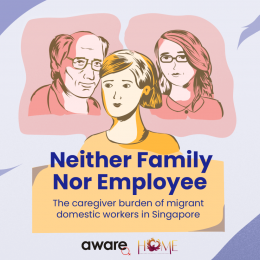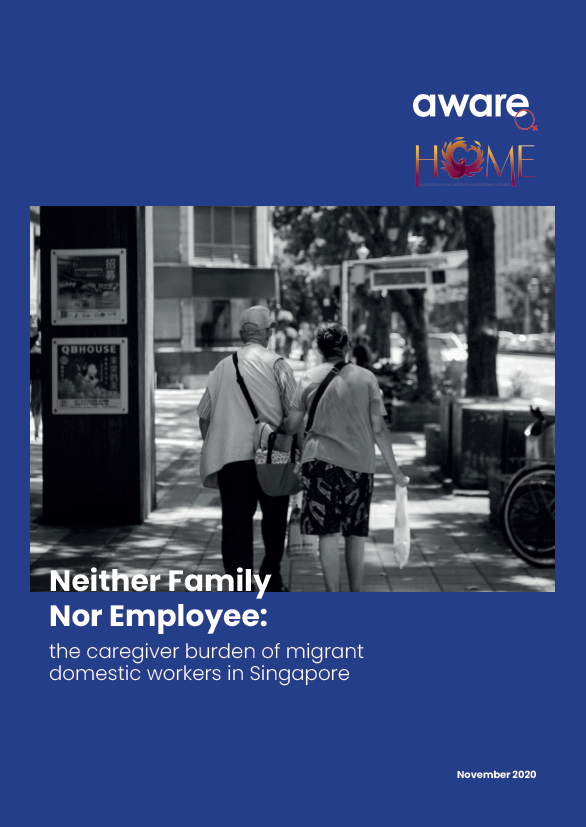
Migrant Domestic Workers Performing Eldercare
November 13, 2020
What are the issues?
- Poor matching of migrant domestic workers (MDWs) to employers results in many MDWs providing a higher level of care than they had been prepared for before they were hired.
- MDWs are typically overworked, leading to ailments like headaches, body pains and interrupted sleep. Many do not have a weekly rest day, and when they are granted time off from work, it never spans a full 24 hours.
- MDWs lack sufficient emotional and informational support to deal with the evolving care needs of elderly persons, which tend to intensify over time, as well as verbal/physical abuse from persons with dementia.
What changes do we want to see?
- Better matching of MDWs to eldercare jobs: Introduce a standard matrix for categorising care needs and for categorising skill levels of MDWs; ensure that MDWs are adequately trained.
- Protection of MDWs from overwork: Strengthen legislative protection of MDWs; guarantee access to respite care services.
- Caregiving-specific support for MDWs: Create MDW-centred caregiver support resources; require employment agencies deploying MDWs for eldercare to provide caregiving-related informational support.
- Professionalising home-based and live-in caregivers in the long-term: Introduce a Skills Framework (like SkillsFuture); strengthen the valuation of compensation for paid and unpaid caregiving work.
What are we doing about it?
- Alongside the Humanitarian Organisation for Migration Economics (HOME), we published “Neither Family nor Employee”, a research report on the caregiver burden faced by MDWs providing eldercare in Singapore. It included in-depth interviews with 25 MDWs, 4 employment agencies, 7 employers of MDWs and 5 formal providers of eldercare training.




